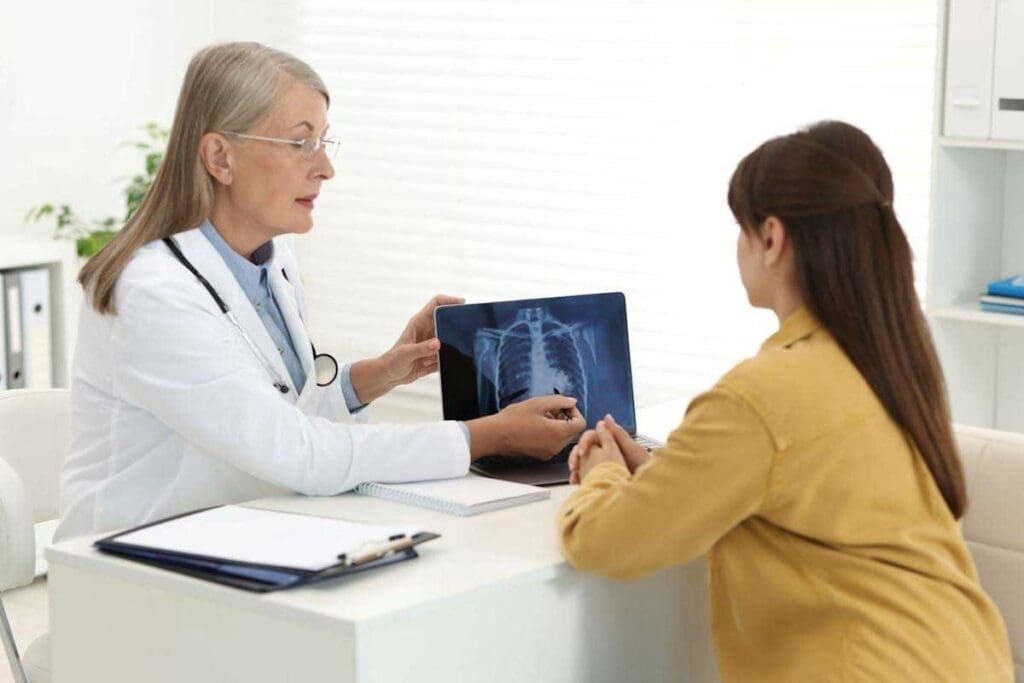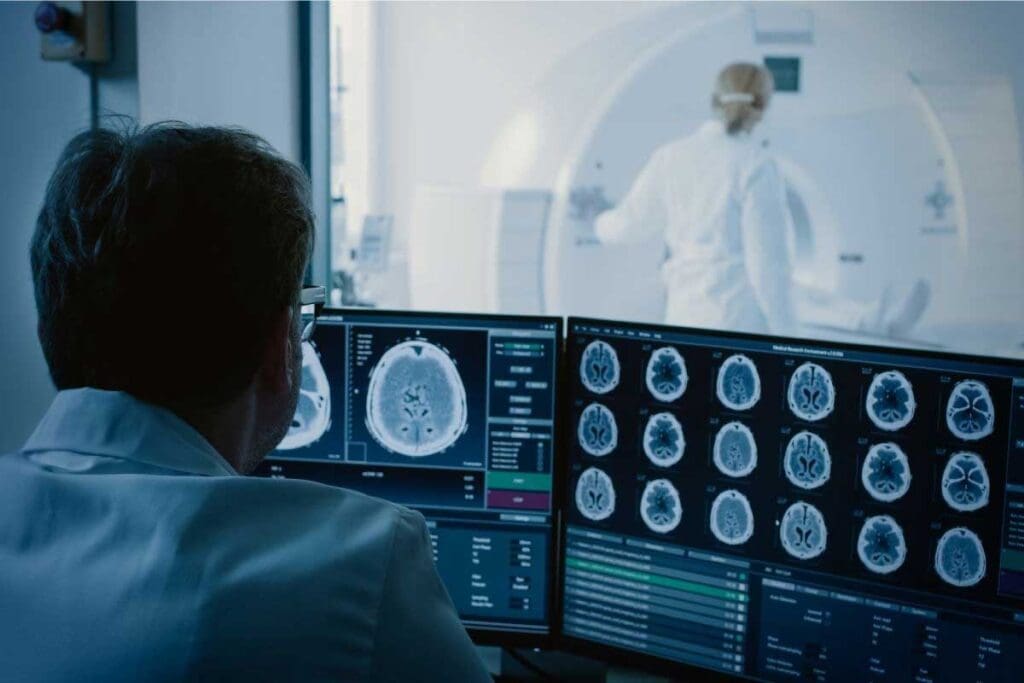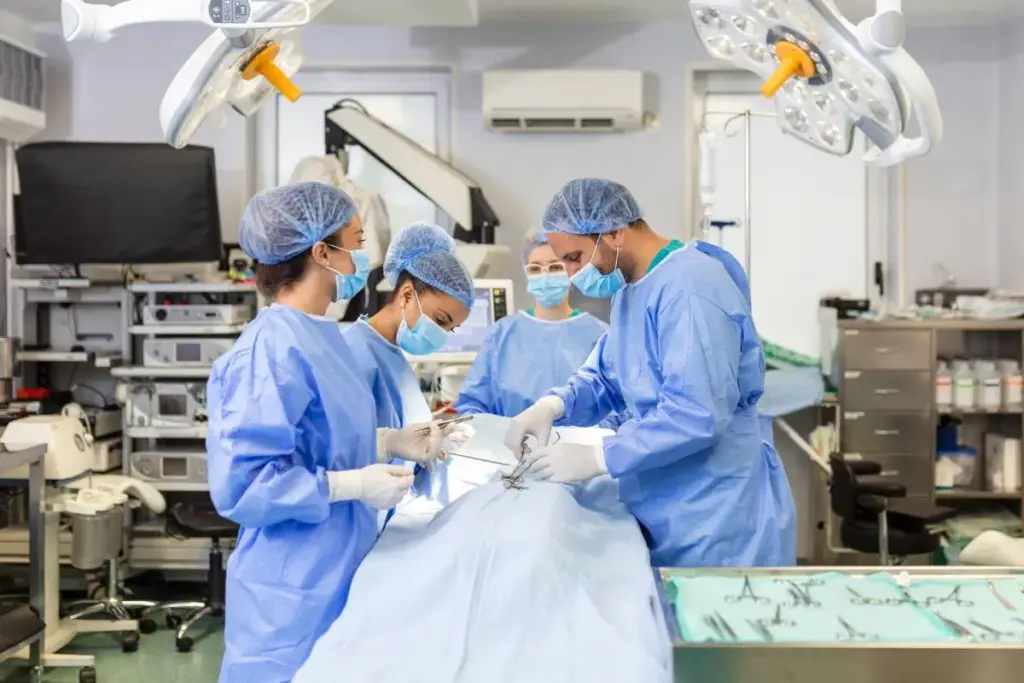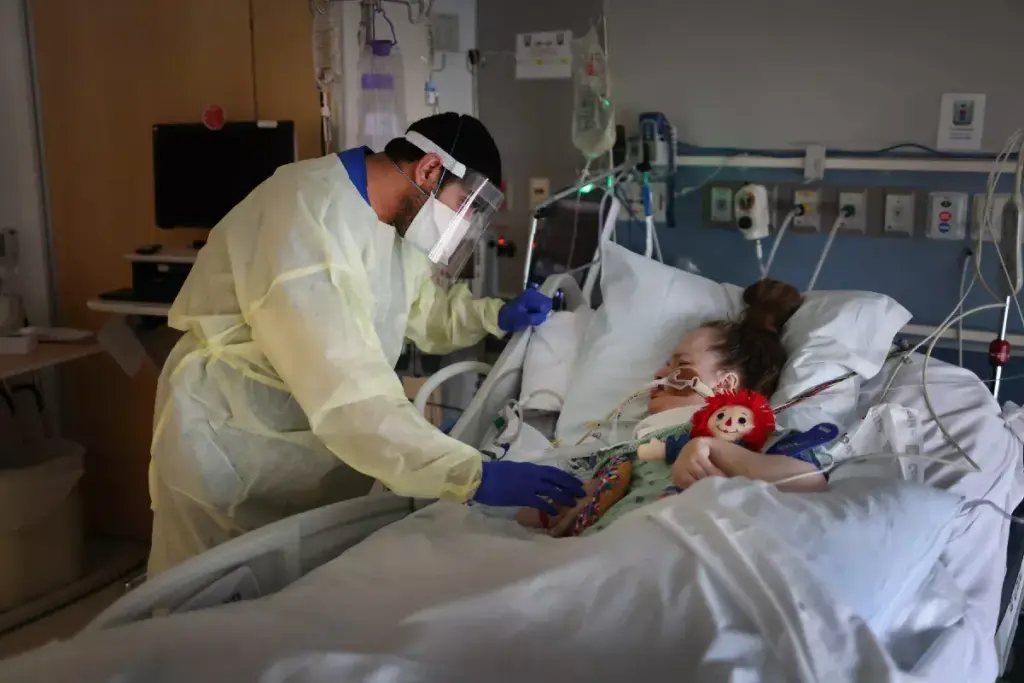
When you receive a cancer diagnosis, finding the right doctor is crucial. Many patients ask, “what is a cancer doctor called?” The answer is an oncologist — a doctor who specializes in cancer. Oncologists help with diagnosis, treatment, and overall management of the disease.
There are three main types of cancer doctors: medical oncologists, surgical oncologists, and radiation oncologists. Each focuses on a different aspect of cancer care but works together to provide the best treatment. At Liv Hospital, we guide patients in understanding these choices and support them every step of the way.
Key Takeaways
- An oncologist is a doctor who specializes in diagnosing and treating cancer.
- There are three main types of cancer doctors: medical oncologists, surgical oncologists, and radiation oncologists.
- Each type of oncologist has distinct but complementary roles in cancer care.
- Oncologists provide complete care, from finding the cancer to managing it.
- Knowing about the different oncologists can help you choose the right care for you.
What Is a Cancer Doctor Called? Defining Oncologists

When someone is diagnosed with cancer, they often wonder, ‘What is a cancer doctor called?’ The answer is simple. An oncologist is a doctor who specializes in treating cancer. They help with diagnosis, treatment, and care.
An oncologist has special training in oncology, which is the study of cancer. They cover many areas of cancer care. This makes them key in planning treatment for patients.
The Role of an Oncology Physician in Cancer Care
An oncology physician, or oncologist, has many roles in cancer care. They diagnose cancer and figure out its stage. Then, they create a treatment plan that might include surgery, chemotherapy, or radiation.
They also focus on supportive care to manage symptoms and side effects. This helps patients keep a good quality of life during treatment. Oncologists work with other healthcare teams for full care.
Oncologist vs. Other Medical Specialists
Oncologists are cancer experts, but not all cancer treatment is done by them. For example, surgical oncologists do cancer surgeries, and radiation oncologists focus on radiation therapy. Knowing the different types of oncologists and their roles is important for patients.
| Specialist | Role in Cancer Care |
| Medical Oncologist | Specializes in drug therapies, including chemotherapy and targeted therapy. |
| Surgical Oncologist | Performs surgical procedures to remove tumors and diagnose cancer. |
| Radiation Oncologist | Uses radiation therapy to treat cancer. |
Understanding the different roles in oncology helps patients make better choices. They can make informed decisions about their treatment.
Types of Oncology Specialties

Cancer care is complex and needs a team of specialists. We count on these experts to give full care to cancer patients.
Oncology has many specialties, each focusing on a different part of cancer treatment. Knowing these specialties helps patients understand their care better.
Medical Oncologists: Specialists in Drug Therapies
Medical oncologists treat cancer with drugs like chemotherapy and immunotherapy. They are key in managing cancer with medication. They work with other specialists to plan the best treatment.
These oncologists are trained to give and manage cancer treatments. This includes targeted therapy and hormone therapy. They make sure patients get the right drug treatment for their cancer.
Surgical Oncologists: Cancer Surgery Experts
Surgical oncologists are experts in surgeries to remove tumors. They work with other specialists to find the best surgery for each patient.
They not only remove cancer but also try to keep the surgery from affecting the patient’s life too much. They are skilled in many surgical techniques, including minimally invasive ones.
Radiation Oncologists: Focused on Radiation Therapy
Radiation oncologists use radiation therapy to treat cancer. They plan and carry out radiation treatments that target cancer cells but spare healthy tissue.
They use advanced technology to give precise radiation doses. This includes techniques like intensity-modulated radiation therapy (IMRT) and stereotactic body radiation therapy (SBRT).
| Type of Oncologist | Specialty | Role in Cancer Care |
| Medical Oncologist | Drug Therapies | Administers chemotherapy, immunotherapy, and other medication-based treatments. |
| Surgical Oncologist | Cancer Surgery | Performs surgeries to remove tumors and cancerous tissue. |
| Radiation Oncologist | Radiation Therapy | Develops and implements radiation treatment plans to target cancer cells. |
Together, these oncologists make sure cancer patients get the best care. They address each patient’s unique needs and situation.
The Multidisciplinary Approach to Cancer Care
The way we treat cancer is changing. Now, experts from different fields work together. This team approach helps give patients the best care possible.
Collaboration Among Cancer Specialists
Cancer specialists work together to help patients. Medical oncologists, surgical oncologists, and radiation oncologists create treatment plans that fit each patient’s needs.
- Medical oncologists focus on drug treatments like chemotherapy.
- Surgical oncologists perform surgeries to remove tumors.
- Radiation oncologists use radiation to treat cancer, alone or with other treatments.
This teamwork makes sure patients get the best care. It leads to better results for patients.
The Cancer Care Team Beyond Oncologists
The cancer care team includes many healthcare professionals. Nurses are key, supporting patients and their families.
- Palliative care specialists manage symptoms and improve life quality.
- Rehabilitation specialists help patients recover from treatments.
- Psychologists and social workers offer emotional support and help with the mental impact.
These professionals work together to meet all cancer patients’ needs. They form a complete care team.
By teaming up, cancer specialists offer personalized care. This approach improves patient outcomes and quality of life. It’s a key part of effective cancer treatment, ensuring patients get the best care.
Specialized Cancer Doctors
Cancer affects people all over the world, making the need for specialized doctors more urgent than ever. The treatment of cancer has grown complex, leading to many oncology specialties. Each one focuses on different parts of cancer care.
Oncologists Specializing in Specific Cancer Types
Some doctors specialize in certain cancers, like breast, lung, or gynecologic cancers. These specialized oncologists know the latest treatments and research in their field. For example, a breast cancer doctor knows the best treatments for breast cancer patients.
- Breast Cancer Specialists: These oncologists deal with breast cancer, working with surgeons and other doctors.
- Lung Cancer Specialists: They are key in treating lung cancer, using new and targeted therapies.
- Gynecologic Cancer Specialists: They focus on cancers of the female reproductive system, giving full care to patients.
Population-Specific Oncologists
There are also doctors who focus on specific patient groups. These population-specific oncologists tailor care to meet the unique needs of their patients. This includes age, genetics, or other factors.
Pediatric oncologists care for children with cancer, addressing the special challenges of treating young patients. Geriatric oncologists focus on older adults, considering the effects of aging and other health issues.
The work of these specialized cancer doctors is vital for quality care. By focusing on certain cancers or patient groups, they keep up with the latest research and treatments. This helps improve patient outcomes.
Education and Training of Cancer Specialists
Becoming a cancer specialist requires a lot of hard work and dedication. Oncologists are key in cancer care. Their education and training show how complex and detailed their job is.
Medical School and Residency Requirements
To become an oncologist, you first need to finish medical school. This takes four years after getting a bachelor’s degree. In medical school, you learn a lot about medicine through classes and clinical work.
After medical school, you enter a residency program. This can last from three to seven years. It’s a chance to practice what you’ve learned in a real-world setting.
Oncology Fellowships and Board Certification
After residency, you might want to specialize in oncology. This means doing a fellowship program. These programs last one to three years and focus on specific areas of oncology.
Getting board-certified is also important. In the U.S., the American Board of Internal Medicine (ABIM) certifies medical oncologists. The American Board of Radiology (ABR) certifies radiation oncologists. This shows you’re ready to give top-notch care.
Here’s a quick look at how oncologists get trained:
| Stage | Duration | Description |
| Medical School | 4 years | Foundation in medicine, including classroom and clinical training |
| Residency | 3-7 years | Hands-on training in a clinical setting |
| Oncology Fellowship | 1-3 years | Advanced training in a specific area of oncology |
| Board Certification | Varies | Certification by a professional board, demonstrating expertise |
Oncologists go through a lot of education and training. This makes them ready to help their patients. As cancer research grows, oncologists keep up with new treatments and ideas.
The Growing Demand for Oncologists
Cancer cases are rising worldwide, making skilled oncologists more needed. Aging populations and lifestyle changes are driving this increase. This has big implications for healthcare, highlighting the need for more oncologists.
Rising Global Cancer Incidence
Cancer is a major cause of death globally, and its numbers are expected to keep growing. The World Health Organization (WHO) says the cancer burden will jump by 47% by 2040. This is due to more people living longer and increased risks from obesity and lack of exercise.
This rise in cancer means more people need specialized care. Oncologists are key in providing this care. They are vital in the fight against cancer.
Addressing the Cancer Doctor Shortage
There’s a worry about a shortage of cancer doctors. An aging workforce and more patients are contributing to this. To tackle this, efforts are underway to train more oncologists and attract them to the field.
Patients can help by finding top oncologists. Online resources can help find the best oncologist near me or the best cancer doctor near me. This ensures they get the best care.
Having skilled oncologists is critical for cancer patients. By understanding the demand and working on the shortage, we can ensure patients get top-notch treatment.
Oncologists at the Forefront of Cancer Research
Oncologists are key in finding new cancer treatments. They not only treat patients but also help shape the future of cancer care. Their work in research is vital.
Oncologists play a big role in understanding cancer and finding new treatments. They work in clinical trials and experimental treatments. This helps bring new therapies to patients.
Clinical Trials and Experimental Treatments
Oncologists are key in clinical trials. These trials test new cancer treatments. They check if these treatments are safe and work well.
- Evaluating new drug therapies and treatment combinations
- Assessing the effectiveness of novel treatment approaches
- Identifying possible side effects and risks of new treatments
By joining clinical trials, oncologists give patients access to new treatments. This helps patients and advances cancer care.
Translating Research into Practice
Oncologists do more than just run trials. They also use research to improve patient care. This means using new findings to help patients better.
Liv Hospital shows how research can improve cancer care. Oncologists keep up with the latest research. This helps them give patients the best treatment plans.
- Applying research findings to clinical practice
- Developing personalized treatment plans based on the latest research
- Continuously updating knowledge and skills to reflect the latest advancements in cancer care
In conclusion, oncologists lead in cancer research. They drive progress in treatment and care. Their work is key to better patient outcomes and the future of cancer therapy.
Finding the Best Oncologist Near Me
Finding the right oncologist is key for those facing cancer. There are many specialists out there. It’s important to know how to pick the best one for you.
Researching the Best Cancer Doctor Near Me
Start by looking into the oncologist’s credentials and skills. Make sure they are board-certified in their field. Reading patient reviews can also help you understand their care quality.
Don’t forget to ask your primary doctor or other healthcare workers for recommendations. They often know good oncologists based on their experience and patient feedback.
Questions to Ask When Choosing an Oncologist
When you have a list of oncologists, ask important questions during your first meeting. Find out about their experience with your cancer type and the treatments they suggest.
Also, ask about their patient care approach, support services, and how they work with other doctors. This information helps you make a good choice.
| Aspect to Consider | Questions to Ask |
| Experience and Expertise | How many years have you been treating patients with my type of cancer? |
| Treatment Approaches | What treatment options do you recommend, and why? |
| Patient Care and Support | What support services do you offer to patients and their families? |
By doing your research and asking the right questions, you can find the best oncologist for you. They will provide the care you need.
What to Expect When Visiting a Cancer Specialist
Visiting a cancer specialist is the first step in understanding and treating cancer. You’ll get all the care and guidance you need. Seeing an oncologist is a big step towards learning about your diagnosis and treatment options.
The First Appointment with a Cancer Doctor
At your first visit, several important steps will be taken. They aim to understand your condition and plan your treatment. Here’s what you can expect:
- Medical History Review: Your oncologist will look over your medical history. This includes any past cancer treatments, family cancer history, and other health info.
- Discussion of Diagnosis: The specialist will explain your diagnosis in detail. They’ll tell you about the type and stage of cancer and how it affects your health.
- Treatment Options: Your oncologist will discuss the different treatments you can choose from. These include surgery, chemotherapy, radiation, or a mix of these.
- Developing a Treatment Plan: With your cancer care team, you’ll create a treatment plan. It will be made just for you, based on your needs and condition.
Ongoing Care and Treatment Planning
Getting ongoing care from your oncologist is key to managing your cancer treatment. Here’s what you can expect:
- Regular Follow-Ups: You’ll have regular check-ups with your cancer specialist. They’ll watch how you’re doing with treatment and help with any side effects or concerns.
- Adjustments to Treatment: If needed, your treatment plan might change. This is based on how you’re doing and any changes in your condition.
- Supportive Care: Your oncologist will also help with supportive care. This includes pain management, nutrition advice, and emotional support.
Knowing what to expect from a cancer specialist visit can make you feel more ready and confident. Your oncologist is a big part of your cancer journey. They offer expert guidance and support every step of the way.
Conclusion
Oncologists are key in cancer care, giving support and guidance all along the way. Their knowledge is vital for better patient results. They lead in cancer research and treatment.
Cancer care is more than just treatment. It also includes emotional and psychological support. Oncologists and specialists work together as a team. This team effort ensures patients get top-notch care from start to finish.
We are dedicated to providing the best healthcare worldwide. Understanding oncologists and specialists helps us see their critical role. Their work is essential for better cancer care and outcomes.
FAQ
What is an oncologist, and what do they do?
An oncologist is a doctor who deals with cancer. They help patients with cancer by giving treatments like chemotherapy. They also manage the disease.
What are the different types of oncologists?
Oncologists come in different types. Medical oncologists use drugs to treat cancer. Surgical oncologists perform surgeries for cancer. Radiation oncologists use radiation to fight cancer.
How do I find the best oncologist near me?
To find a good oncologist, check their credentials and read reviews. Ask questions and get referrals from your doctor or other healthcare workers.
What can I expect during my first appointment with an oncologist?
At your first visit, the oncologist will look at your medical history. They will do a physical check-up and talk about your treatment options. They will also answer your questions and guide you through treatment.
How do oncologists contribute to cancer research?
Oncologists are key in cancer research. They join clinical trials, create new treatments, and apply research to patient care. They aim to understand cancer better and find better treatments.
What is a multidisciplinary approach to cancer care?
A multidisciplinary approach means a team of doctors works together. This team includes oncologists, surgeons, and radiologists. They provide complete care to cancer patients.
How long does it take to become an oncologist?
Becoming an oncologist takes a long time. It involves medical school, a residency, and a fellowship in oncology. It can take 11-12 years after high school.
What is the role of a cancer specialist in my care?
A cancer specialist, or oncologist, is key in your care. They diagnose, treat, and manage your cancer. They create a treatment plan for you and support you throughout your care.
Are there oncologists who specialize in specific types of cancer?
Yes, some oncologists focus on certain cancers like breast or lung cancer. They have deep knowledge and skills in treating these cancers.
References:
- Brasher, P. M. A., & Coyle, D. (2018). Cost-effectiveness of Cancer Treatment Modalities: Systematic Review and Implications for Policy. Health Economics Review, 8(1), 89.https://healtheconomicsreview.biomedcentral.com/articles/10.1186/s13561-018-0212-6










